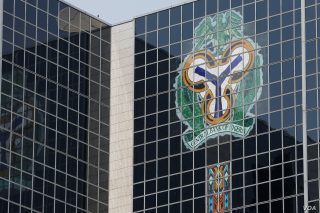Nigeria plans to raise the minimum capital requirements for microfinance banks operating in the country. This move is meant to reposition and strengthen lenders towards improved performance, the banking regulator said Thursday.
The new minimum capital structure, contained in a draft released by the Central Bank of Nigeria, states that Tier 1 unit microfinance banks must have a ₦100 million capital threshold by April 2020, and ₦200 million by April 2021. For Tier 2, the regulator raised the capital base to ₦50 million by April 2021, but by April this year, the threshold should be ₦35 million.
State-based banks are to have a capital base of ₦500 million by April 2020 and ₦1 billion by April 2021 while national microfinance banks must have a minimum of ₦3.5 billion base this year and ₦5 billion by April 2021.
The new recapitalization scheme comes on the back of a recent one in 2018 when the capital requirements of the banks were raised in order to curb the challenges of capital inadequacy facing the sector.
Generally, higher minimum capital requirements for MFBs encourage consolidation, which strengthens the industry. For instance, unit MFBs that are unable to raise additional capital on their own would seek mergers with others or acquisition by state or national banks, while newly-licensed lenders would ensure they have sufficient resources to become financially self-sustainable.
Recapitalization also helps to slow down the rate of entry of new MFBs. An advantage of restricting entry is increased incentives for would-be investors to acquire, consolidate and reinvigorate existing banks, rather than establish new lenders that may compete with already weak existing ones. These actions considerably ease the severe pressures placed on the CBN’s supervisory resources.
“The need to reposition and strengthen MFB towards improved performance had become apparent as revealed from the report of a recent review of the subsector,” the CBN said. “Accordingly, the 2012 guidelines have been reviewed to strengthen and complement other on-going reform in the MFB sector. An exposure draft of the review guidelines is hereby issued for comments and observations.”
Part of the general reforms in the financial subsector includes the introduction of tougher sanctions for banks that divest from their approved business. According to the revised supervisory and regulatory guidelines, any bank that operates outside its approved business would be fined the sum of N500,000 and such will forfeit its estimated profit. And before any lender restructures or performs any reorganization, it must receive the CBN’s approval or risk a fine of the same amount.








